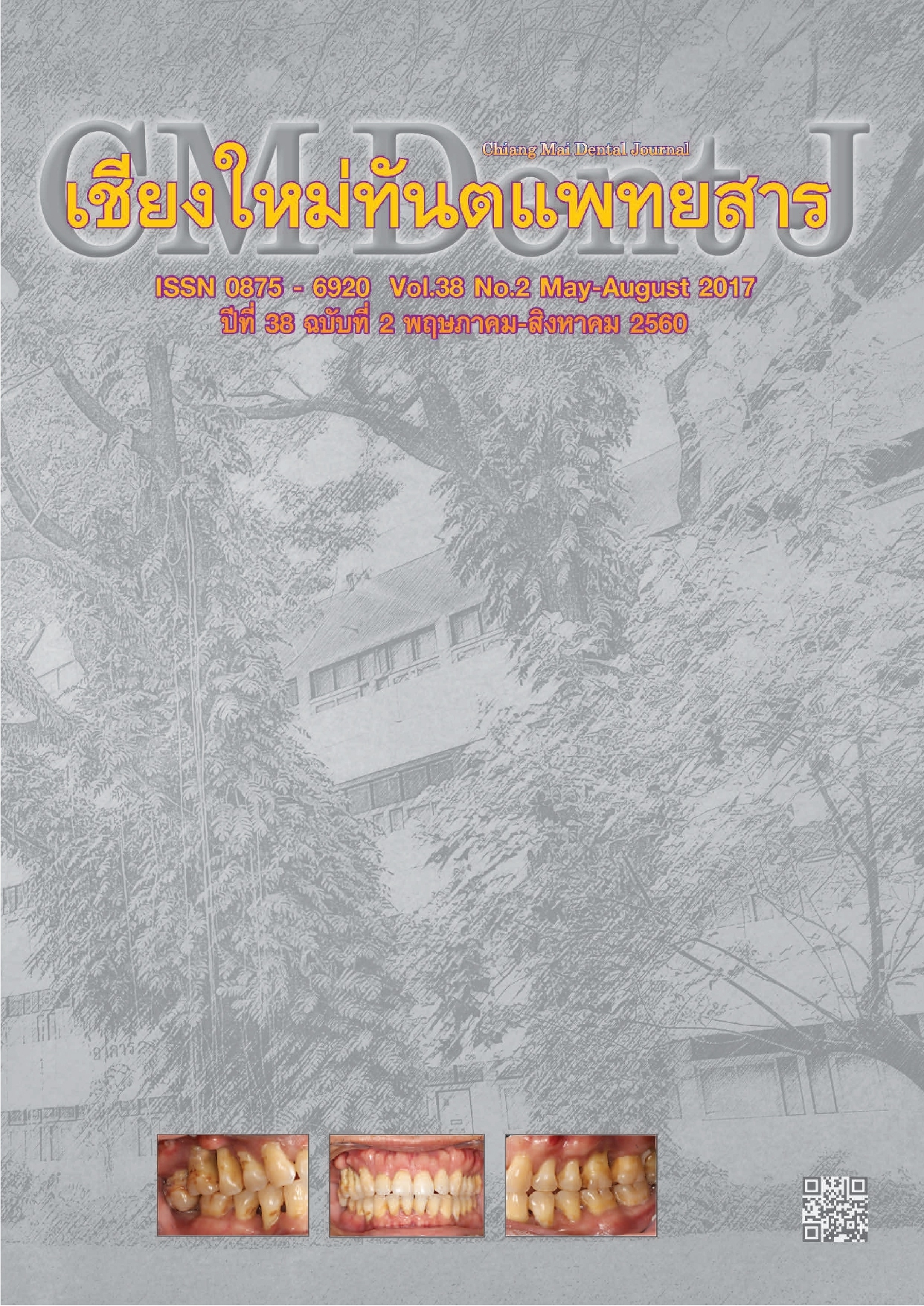Analytical Thinking Process of Folk Denturist’s Customers Using the Elaboration Likelihood Model
Main Article Content
Abstract
Objective: To determine the analytical thinking process of folk denturist’s customers using the elaboration likelihood model.
Methods: The participants of this qualitative study were 20 customers who lived in Wangchin district, Phrae province. This study used snowball technique to identify customers who received dental service at Wangchin hospital and used to have their false teeth service from folk denturist. Data were collected from June to August 2016 and by using semi – structured interview based on literature reviews. To analyze the data by typological analysis and analytical induction.
Results: The result showed that analytical thinking process of the customers who had their false teeth from folk denturists occurred when the customers recognized that tooth loss affect daily life performance. As a result of this fear, the informants search more information to fix the malfunctioned teeth. The information from providers and other customers might composed of denture procedure, quality of denture, patterns of denture service and provider’s trust. In addition, emotions such as satisfaction and fear that occurred before, between or after having denture might affect analytical thinking process.
Conclusions: The customers could elaborate either by central or peripheral route of the elaboration likelihood model, because of the difference of each customers about motivation and ability factors.
Article Details
References
Wongkongkathep S. Thai elder’s utilization of dental prosthesis in 2009. J Health Sci 2012; 17(2): 45-59 (in Thai).
Lertmanorut S. Street denturists: the state, the dental profession and illegalization. Case study of a group of street denturist in Bangkok. Master of Arts (Medical and Health Social Sciences). Mahidol University, 2005.
Chadee D. Theories in social psychology. Oxford: Wiley-Blackwell; 2011:96-116.
Adulyanon S, Vourapukjaru J, Sheiham A. Oral impacts affecting daily performance in a low dental disease Thai population. Community Dent Oral Epidemiol 1996; 24(6): 385-389.
Kotler P, Zaltman G. Social Marketing: An Approach to Planned Social Change. JM 1971; 35(3): 3-12.
Flynn BS, Worden JK, Bunn JY, Connolly SW, Dorwaldt AL. Evaluation of smoking prevention television messages based on the elaboration likelihood model. Health Educ Res 2011; 26(6): 976-987.
Tang LR, Jang SS, Morrison A. Dual-route communication of destination websites. Tour Manage 2012; 33(1): 38-49.
Cheng VT, Loi MK. Handling negative online customer reviews: the effects of elaboration likelihood model and distributive justice. J Travel Tour Mark 2014; 31(1): 1-15.
Park DH, Lee J, Han I. The effect of on-line consumer reviews on consumer purchasing intention: The moderating role of involvement. IJEC 2007; 11(4): 125-148.


